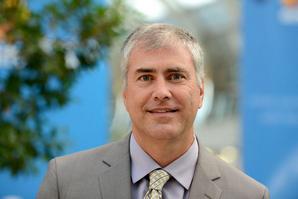By Don Loepp
EDITOR
Published: November 19, 2014 2:11 pm ET
Updated: November 19, 2014 3:39 pm ET

Loepp
It’s kind of an inside joke at Plastics News that I’m not a member of the original staff. That’s fine, I admit it. Plastics News started publishing in March 1989, and I joined the team almost two whole years later, in February 1991.
But that’s OK. Captain America wasn’t an original Avenger, either. Ringo Starr wasn’t an original Beatle. And I like to remind everyone that Plastics News wasn’t profitable before I arrived. Coincidence?
My introduction to the plastics industry was serendipitous. I was a senior business reporter at a mid-sized daily newspaper in Virginia, and I was looking for an opportunity in the Midwest. My wife and I had two preschool-age daughters, plus another on the way. We wanted to live closer to our families.
My younger brother lived in Akron, Ohio, and he used to clip help-wanted ads out of the newspaper for me. One day he sent one from Crain Communications, which was recruiting a reporter for Rubber & Plastics News.
By the time I applied, RPN had already hired Bruce Meyer — and today he’s that newspaper’s executive editor. But RPN’s editor at the time, Ed Noga, thoughtfully asked me to stop by the next time I was in Ohio.
When I made it to Akron, I took an extra day to meet Ed. He mentioned that Crain had just started a new paper in Akron, and he took me downstairs to meet the editor, Robert Grace.
This was 1990, and Plastics News was buzzing with energy. The whole staff was working on their first-ever ranking of North American injection molders. Bob had a chart on his wall with all the top companies. He was very proud of the project.
I ended up taking a small pay cut to come back to Ohio and join an unprofitable new weekly newspaper that, unbeknownst to me, not everyone in the plastics industry thought would survive to see its fifth anniversary, let alone its 25th.
In hindsight, this may not have been good judgment on my part. But it worked out.
The first few months were fun, but a little tense. I remember driving home after work thinking: Is PET a polyolefin? What’s the difference between dip molding and slush molding? What do hot runners do?
Back then our editorial staff was all a little wet behind the ears, at least as far as reporting on plastics. Our reporters and editors had tons of daily newspaper experience. But it’s not like today, with our decades of plastics industry news experience, led by the likes of Bill Bregar, Frank Esposito, Rhoda Miel and Steve Toloken.
Our first big break came in June 1991, with our first NPE show. We deployed everyone to Chicago, even the copy desk, which set up shop in Crain’s office on Rush Street. The reporters had a temporary newsroom too, in the bowels of McCormick Place. We were doing show dailies, and going head-to-head with Modern Plastics, a fixture in plastics publishing for decades.
We more than held our own, we did a great job that week. The dailies, and PN’s attention-getting jungle-themed booth dreamed up by promotion manager Linda Whelan, were a huge success. I remember our sales staff being very excited about our prospects. Don Dasburg, our Chicago-based sales rep who knew more about plastics than the rest of us put together, announced thatPlastics News had arrived.
As usual, Double-D was right. Before too long we were passing up the rest of the magazines in our market.
Our first publisher, Chris Chrisman, said later that our success was inevitable. Crain’s formula of serving the reader first, and advertisers would follow, was bound to work, he said. But I have to disagree. Our team worked very hard. And we cared about our newspaper, and our readers. We wanted our rankings to be as complete as possible. Our resin pricing needed to be timely and accurate. When we did show dailies, we all worked long hours and weekends.
Not everything we did worked — remember the Plastics Encounter trade shows? But we put effort and enthusiasm into every project. I think readers and advertisers understood that, and it helped us get through some tough times in the publishing industry.
For all the support that you’ve given us over the years, I thank you.
As my job changed at Plastics News — I was named news editor in 1993, managing editor in 1995 and editor in 2011 — I got the opportunity see the plastics industry change from a pretty unique and special perspective. And in this 25th anniversary issue, our editorial team gets to share that with our readers. We’re taking the opportunity to look back on some of the biggest trends and issues of the past quarter century. And we’re looking at some major changes to the plastics industry’s top end markets.
But we’re making a major effort to look ahead, too. So we’ve interviewed forward-thinking industry leaders, and we talked to our young readers, many of whom weren’t born when Plastics News started publishing in 1989, to get their perspective on the industry.
After all, I don’t expect to be editor of Plastics News when we celebrate our 50th anniversary in 2039. The next generation of wet-behind-the-ears managers and entrepreneurs is going to have a lot to say about what the plastics industry looks like 25 years from now.
I’ll have some things to say about the direction they take this ship, and the strategies and trends that develop along the way.
Loepp is editor of Plastics News and author of “The Plastics Blog.”
| 